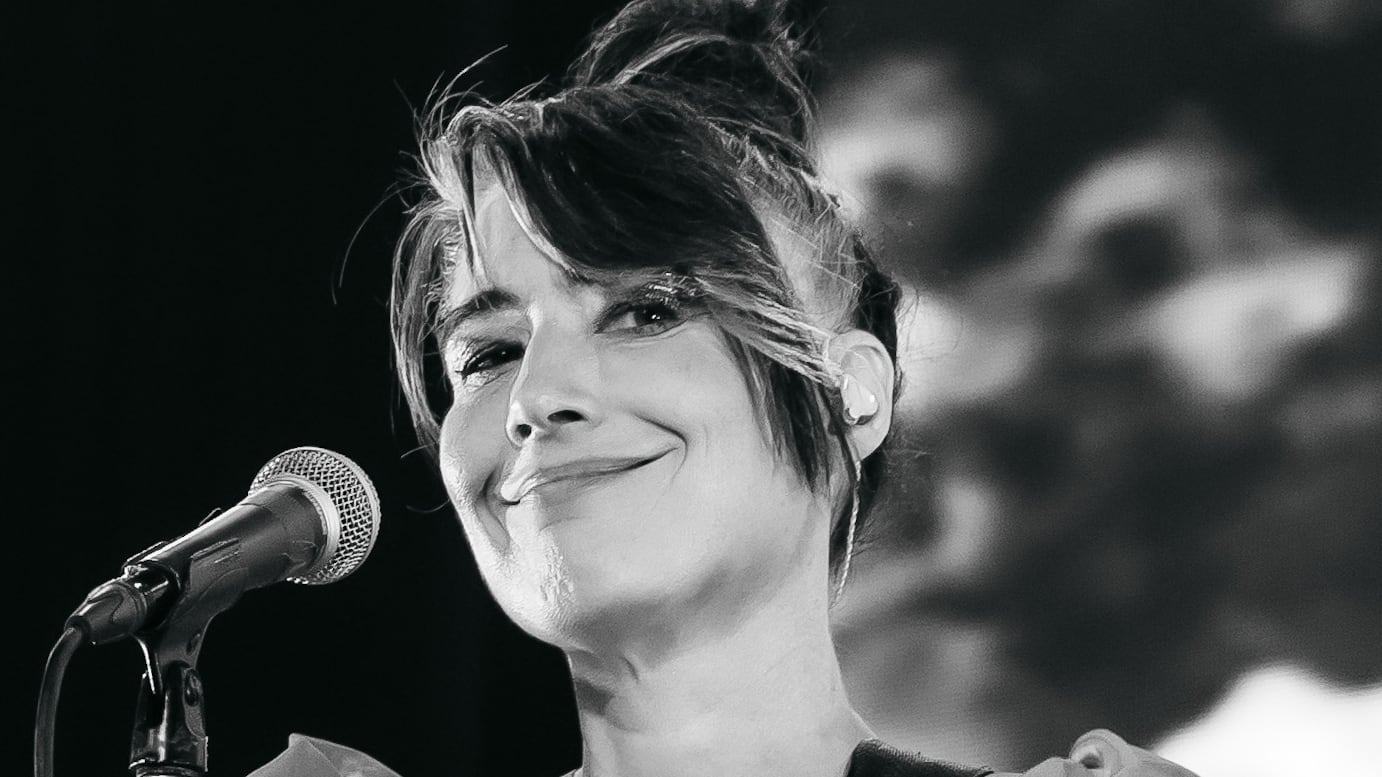Kathleen Hanna, the frontwoman of seminal riot grrrl band Bikini Kill, got her first introduction to sexism at second grade picture day. The photographer had her lie down on her side, propped up on one elbow à la a magazine centerfold. “I hadn’t seen him pose any of the other girls this way. It felt weird and interesting.” Turns out the photographer had misgendered her due to a sewing-shears pageboy haircut—this was the boys’ pose.
“I learned that day that adults were giving girls and boys entirely different instructions,” she writes.
So begins Hanna’s Rebel Girl, an immersive and dishy celebrity memoir that also acts as an important cultural document, both for feminism and rock music. Starting with picture day, Hanna catalogs a lifetime of slights, catcalls, abuses and traumas that go on to fuel her ferocious music. Born in Portland and raised here and in Maryland, Hanna not only created punk rock history with Bikini Kill and Le Tigre, but as a fixture of the Pacific Northwest music scene of the 1980s and ‘90s, her story is intertwined with so many others. Here’s Nirvana, Sleater-Kinney, Courtney Love, and the Beastie Boys. Rebel Girl came out yesterday and Hanna’s book tour swings through Revolution Hall on May 23.
Local references abound, such as Lincoln High School, Mary’s Club and the Plaza nightclub. And did everyone already know that Hanna’s second cousin was the late Walter Cole, better known as drag icon Darcelle XV? Cole offers Hanna some early singing encouragement at a family wedding that felt to her like being “knighted by entertainment royalty,” she writes.
The celebrity appearances are top shelf. To spoil just a few, she gets punched in the face by Courtney Love at Lollapalooza in 1995. She marries Ad-Rock of the Beastie Boys, and saves Mike D from causing an international incident when Canadian border patrol finds a joint in their car. The pièce de résistance, though, occurs one drunken night in Kurt Cobain’s Olympia, Wash., apartment. Hanna scribbles the phrase “Smells Like Teen Spirit” in Sharpie above his bed. A few months later, Cobain calls and asks if he can use the line as the title of a song.
Rebel Girl—also the name of Bikini Kill’s biggest hit and unofficial anthem—cruises along at a quick clip. Hanna’s clean, chronological structure features short, vignette-style chapters (and plenty of pictures). The chapters pop with vivid details—she doesn’t just say her childhood home had ‘70s vibes, she shows us the plaid couch, shag carpeting and her denim leisure suits. This goes for the violence, too, though, which can be difficult reading.
Hanna chronicles an early life of horrific abuse at the hands of her father and others—there’s more violence and humiliation in the eight pages about her high school boyfriend than most of us endure in an entire girlhood—but the book stops short of being trauma porn. Reading it is infuriating and heartbreaking.
Hanna may have started cataloging sexism in second grade, but she certainly did not end there. She puts tons of people and institutions on blast in this book, including but not limited to: the Evergreen State College in Olympia, a Lincoln High School senior class president in the mid-’80s, lead singer Aaron Stauffer of the band Seaweed, and the late Beastie Boys photographer Ricky Powell. Perhaps none so spectacularly as the LHS guidance counselor who, according to the book, sexually harassed Hanna, asked her for drugs, and told her she had no business going to college since she was pretty enough to marry someone with a job.
But she does not hide or starve or drink herself to death—all would be tragic but, honestly, completely understandable reactions to this level of dysfunction and pain. Instead, she makes art and music and zines and support groups and so many feminist flyers. (And drinks. Definitely drinks, too.) When she’s in Bikini Kill, she makes a hot-pink flyer called “why aren’t boys called sluts?” about the sexist slur. She hands them out to girls at Lincoln and, in a satisfying full-circle moment, swings through the office and files a complaint against the guidance counselor.
It’s all enough to make someone want to grab a microphone and scream at the top of their lungs. This, of course, is exactly what Hanna did, which feels like nothing short of a miracle.
GO: Kathleen Hanna is in conversation with Fabi Reyna at Revolution Hall, 1300 SE Stark St., revolutionhall.com. 7:30 pm Thursday, May 23. $40.99. All ages.
